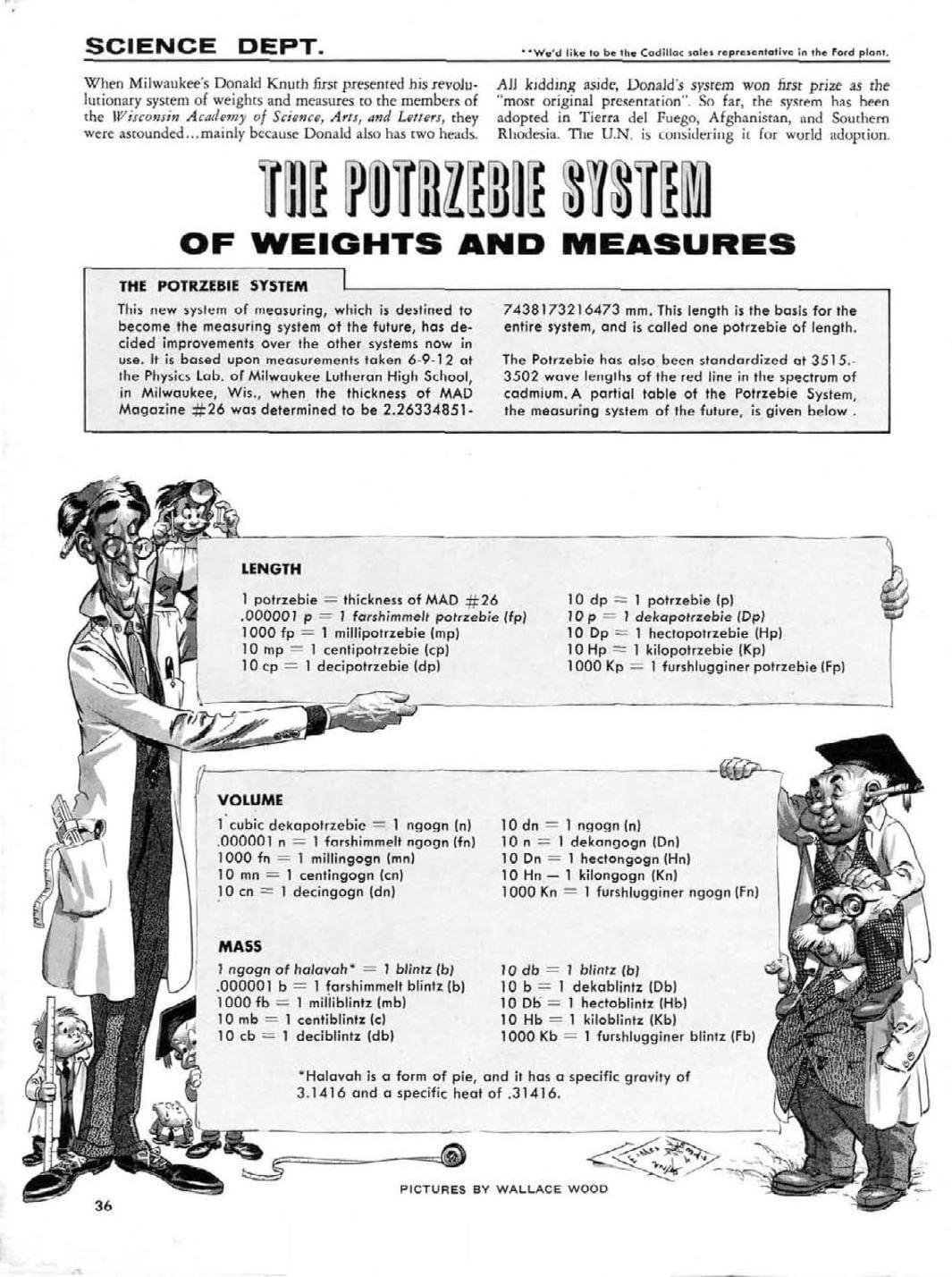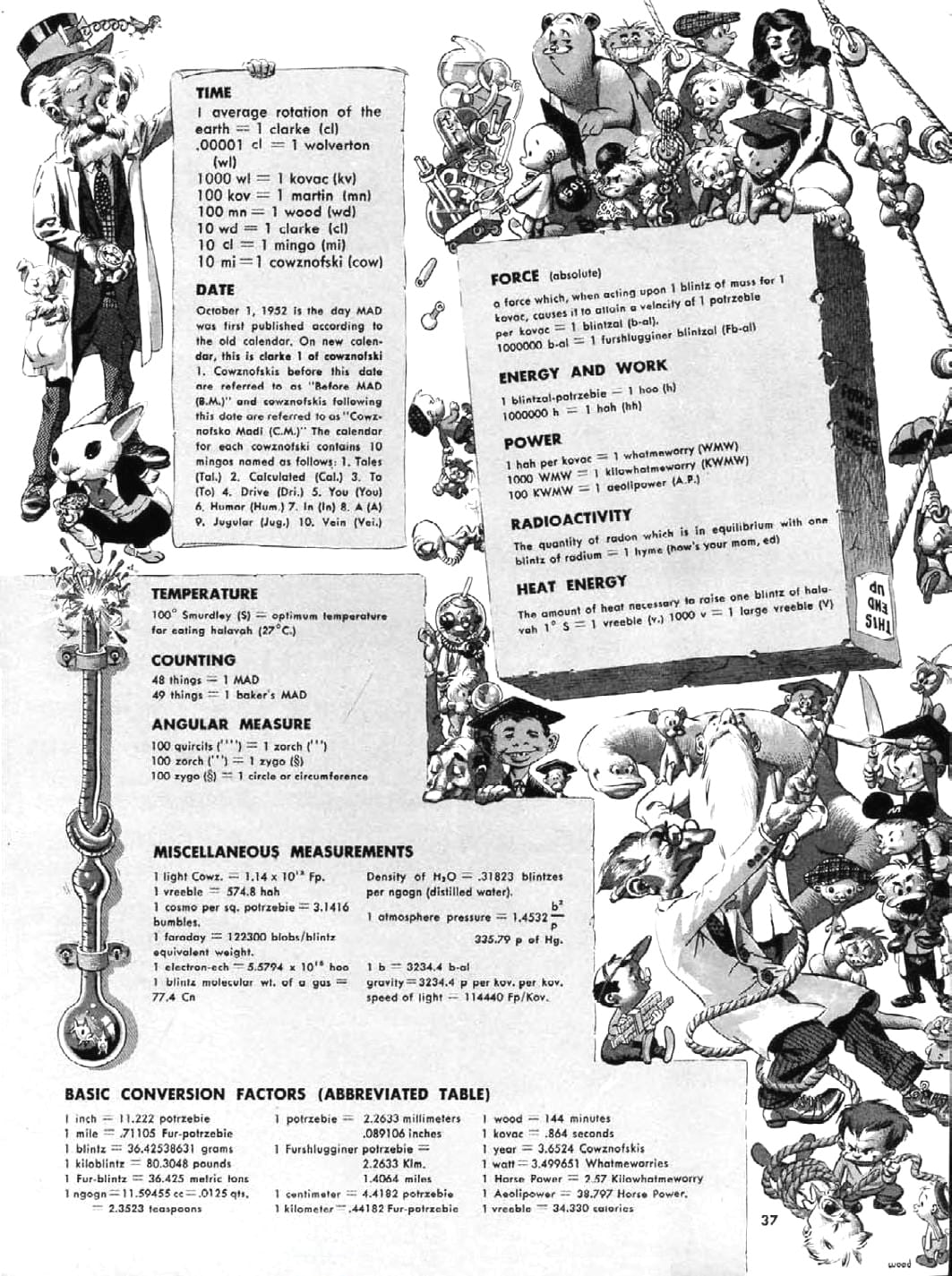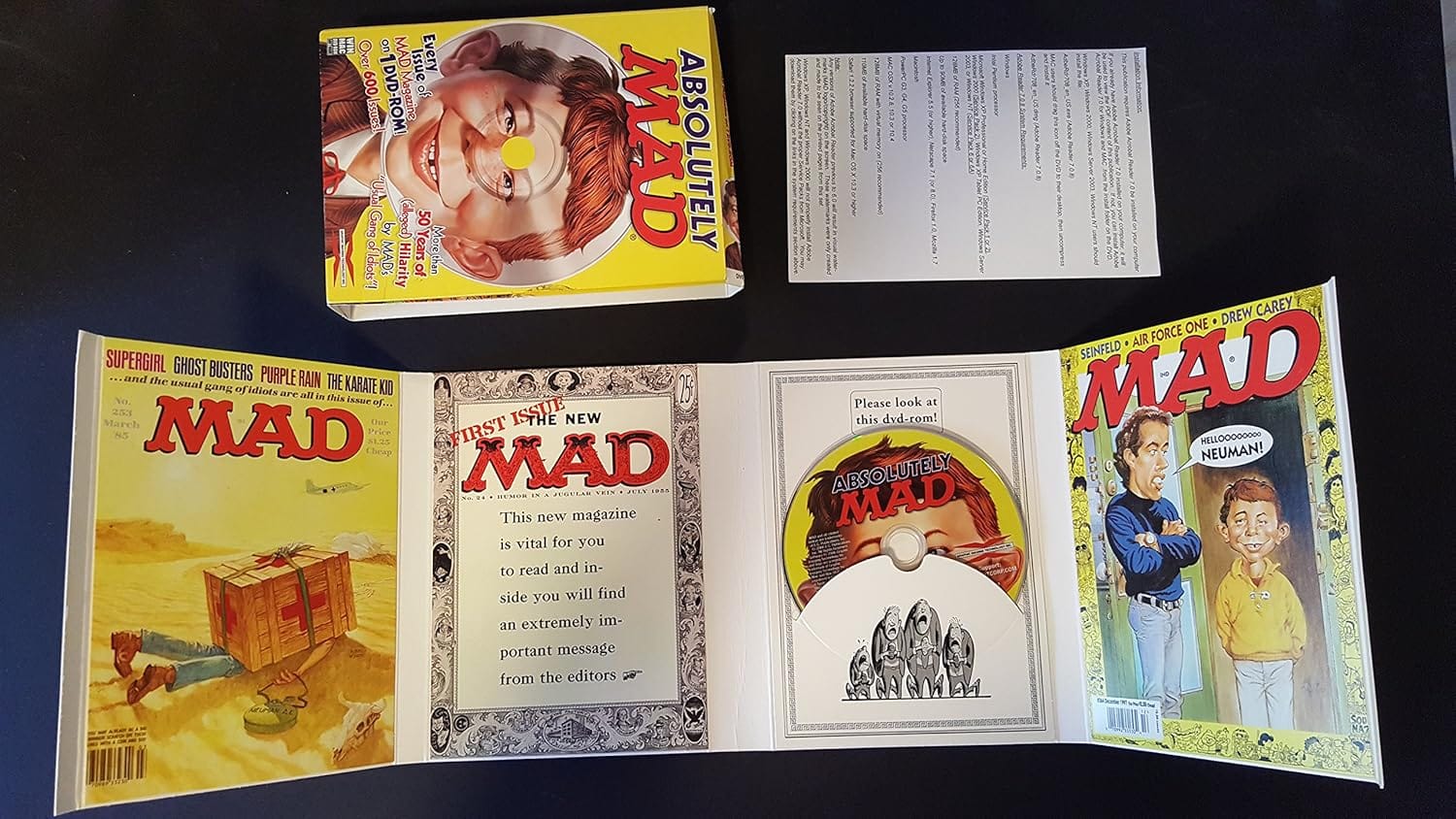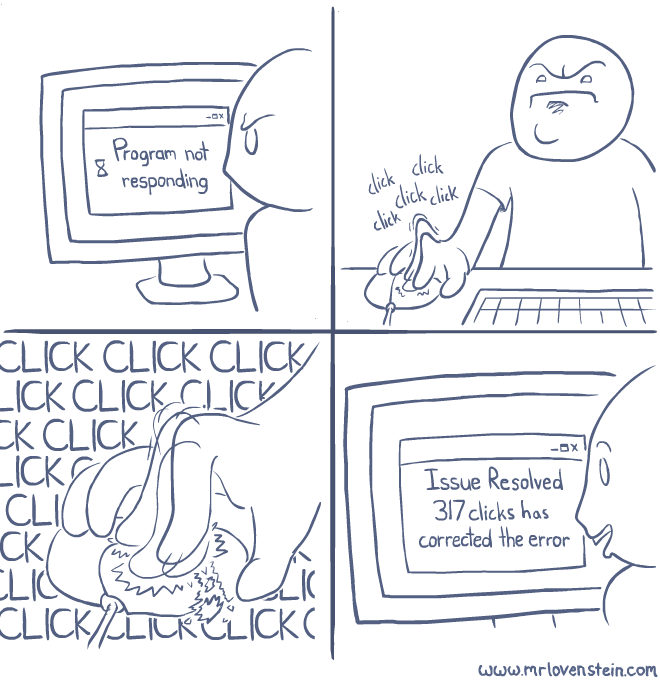The Enduring Art of Computer Programming
I saw on reddit that today, January 10th, is Donald Knuth’s seventieth birthday.

Knuth is arguably the most famous living computer scientist, author of the seminal Art of Computer Programming series. Here’s how serious Mr. Knuth is – his books are dedicated, not to his wife or a loved one, but to a computer:
This series of books is affectionately dedicated
to the Type 650 computer once installed at
Case Institute of Technology,
in remembrance of many pleasant evenings.
Jeffrey Shallit compiled an excellent set of links commemorating the 70th birthday of this legendary figure:
- The Genius of Donald Knuth: Typesetting with Boxes and Glue. “I don’t know of any other software other than TeX implemented in the 1970s that remains absolutely and unquestionably dominant in its domain. And the glue-and-boxes model of text layout was a piece of absolute genius - one of the most masterful examples of capturing an extremely complex problem using an extremely simple model. It’s beautiful. And it’s typical of the kind of thing that Knuth does.”
- Opinion 86 “So Knuth is very right to worry about constants. And he gets his hands dirty and does the coding all by himself, and he gave us such great programs as TeX, and its fully-detailed manuals. He taught us by example the art of computer programming, and he modestly claims that it is art in the sense of the artisan rather than that of the artist. But his perfect artisanship became the most refined of fine arts.”
- Analyzing Algorithm X “Knuth was the first to use the phrase ‘analysis of algorithms,’ at the 1970 ICM in Nice. He popularized and extended O-notation (previously used in functional analysis) as an essential tool for algorithm analysis. And his Art of Computer Programming set the standards for the field and is still well worth reading today.”
- Volume 4 is already written (in our hearts). “But this being a lecture series, Knuth also fields questions from the audience about everything from sin and redemption to mathematical Platonism. He has a habit of parrying all the really difficult questions with humor; indeed, he does this so often one comes to suspect humor is his answer.”
- Don Knuth is 70 “As a member of a community whose life is punctuated by twice-yearly conferences, what I find most inspiring about Knuth is his dedication to perfection, whatever time it might take to achieve it.”
- Today is Knuth’s 70th birthday!! “He was one of the first people to realize that an algorithm can be analyzed in a mathematical and intelligent way without running it. This is one of the most important starting points for computer science theory. Perhaps even for computer science.”
- Happy Birthday, Don Knuth! “Don Knuth straddled both worlds effortlessly, gaining respect from 15 year old hackers and 50 year old researchers alike. And that’s the most tremendous feat of all.”
- Donald Knuth and Me: “Later, when I attended university, I began to understand Knuth’s wider influence. Almost everywhere I turned, Knuth had been there before.”
For mainstream press coverage of Donald Knuth, Jeffrey recommends:
- The Art of Don E. Knuth (Salon)
- Knuth 3:16
- Donald Knuth, Founding Artist of Computer Science (NPR)
- Knuth’s own home page
My very favorite thing about Mr. Knuth is that, despite the profound and enduring depth of his contributions to the field of computer science, he has a great sense of humor. For proof, let’s go back in time. Way, way back, to Mad Magazine #33, originally published in 1957, specifically pages 36 and 37.


These images are from Absolutely Mad: 50 Years of Mad Magazine, a DVD-ROM containing (almost) every issue of Mad. Surprisingly, the disc isn’t encumbered by any bizarre DRM scheme; every issue is a simple PDF file in a folder on the disc. The resolution isn’t as high as I would like, but I’m not about to complain after paying thirty-three measly bucks for a nearly complete digital library of Mad.

(And now, even better, you can get extremely high resolution versions of early Mad Magazines from Comixology. Sadly, it only goes up to issue #23 at the moment. This issue is also available on the Internet Archive now!)
As a long time fan of Mad Magazine, I was delighted to discover that Donald Knuth contributed an article to Mad, “The Potrzebie System of Weights and Measures,” while he was still in high school. It’s a little difficult to read the introductory text that ties the article to Knuth, so I’ll quote it here.
When Milwaukee’s Donald Knuth first presented his revolutionary system of weights and measures to the members of the Wisconsin Academy of Science, Arts, and Letters, they were astounded... mainly because Donald also has two heads. All kidding aside, Donald’s system won first prize as the “most original presentation.” So far, the system has been adopted in Tierra del Fuego, Afghanistan, and Southern Rhodesia. The U.N. is considering it for world adoption.
This new system of measuring, which is destined to become the measuring system of the future, has decided improvements over the other systems now in use. It is based on measurements taken 6-9-12 at the Physics Lab of Milwaukee Lutheran High School, in Milwaukee, Wis., when the thickness of Mad Magazine #26 was determined to be 2.263348517438173216473 mm. This length is the basis for the entire system, and is called one potrzebie of length. The Potrzebie has also been standardized at 3515.3502 wave lengths of the red line in the spectrum of cadmium. A partial table of the Potrzebie System, the measuring system of the future, is given below.
I still subscribe to Mad Magazine; the biting satire and political humor haven’t aged a bit in the intervening fifty years. I know it sounds crazy for a grown man to extol the virtues of what most charitably consider to be a kids’ humor rag. But I’m not the only one. Just ask the Los Angeles Times’ Robert Boyd:
[Mad Magazine] instilled in me a habit of mind, a way of thinking about a world rife with false fronts, small print, deceptive ads, booby traps, treacherous language, double standards, half truths, subliminal pitches and product placements; it warned me that I was often merely the target of people who claimed to be my friend; it prompted me to mistrust authority, to read between the lines, to take nothing at face value, to see patterns in the often shoddy construction of movies and TV shows; and it got me to think critically in a way that few actual humans charged with my care ever bothered to.
Programming algorithms are hard science, backed by some serious math. Thanks for the reminder, Mr. Knuth, that computer science is indeed serious stuff, but it’s also a lot of fun. Here’s to you – and to the enduring art of computer programming you introduced us all to.









